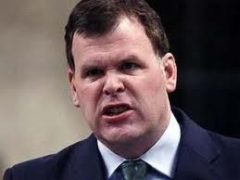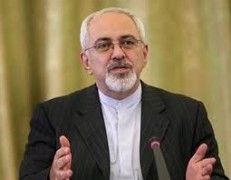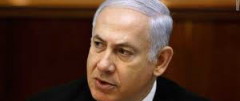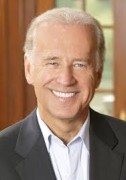Canadian Foreign Minister John Baird told the United Nations General Assembly on Sept. 30 that Iran’s current charm offensive is more show than substance. “Sound bites do not remove threats to global security,” he said in a reference to Iran’s militarized nuclear program.
Canada will judge Iran on the basis of its actions rather than its rhetoric, he added.

U.S. President Barack Obama sounded a similar theme after exchanging letters and speaking by telephone with the newly elected Iranian president, Hassan Rouhani, a self-styled moderate and pragmatist who wants to “manage differences” and normalize bilateral relations with the United States in the hope of lifting crushing economic sanctions.
Iran, Obama declared, must prove it is willing to undertake “meaningful, transparent and verifiable actions” so as to convince the world it will abide by United Nations Security Council resolutions.
Specifically, the Iranian government must suspend uranium enrichment, allow the International Atomic Energy Agency greater access to nuclear sites and provide a full accounting of its intentions.
In four rounds of talks between Iran and the super powers — the United States, Russia, China, France, Britain, Germany and the European Union — in Istanbul, Baghdad, Moscow and Almaty since 2012, Iran has resisted these demands.
After the conclusion of the last session in April, Catherine Ashton, the European Union’s chief foreign policy representative, lamented that the two sides remain “far apart” on substantive issues.
Iran and the super powers are scheduled to resume discussions in Geneva in mid-October in an attempt to break the impasse. On a rhetorical level, at least, Iran appears eager to reach an agreement.
The surface dynamics have changed since Rouhani’s election in June.
Although he’s a consummate insider, having served as Iran’s chief nuclear negotiator from 2003 to 2005, and is close to the hard line supreme leader, Ayatollah Ali Khamenei, Rouhani seeks a rapprochement with the United States and its allies. The reason is crystal clear: the Iranian economy is in tatters.
Sanctions have taken a terrible toll, having devalued the national currency, cut oil exports by half, depleted government revenues substantially and caused widespread misery.
With the support of Ayatollah Khamenei, who has praised the virtues of flexibity in diplomacy, Rouhani and his new foreign minister, Mohammed Javad Zarif, have embarked a concerted public relations campaign aimed at convincing skeptics that Iran is indeed serious about resolving the nuclear file.

Claiming that Iran does not seek weapons of mass destruction, and supports a nuclear-free zone in the Middle East, Rouhani has expressed a desire to defuse tensions with the West, unlike his bombastic predecessor, Mahmud Ahmadinejad, who revelled in confrontations with the United States.
Obama seeks engagement with Iran as well. From the moment he assumed the presidency in 2009, he has tried to build bridges between Washington and Tehran, which had excellent bilateral relations prior to the 1979 Iranian revolution. As Obama said, “If countries like Iran are willing to unclench their fist, they will find an extended hand from us.”
Iran did not respond to Obama’s overtures and relations deteriorated. Four years on, Iran seems ready to engage the United States, but on its own terms.
When he was campaigning in the last election, Rouhani called for a major review of Iran’s foreign policy. “Review does not mean a change in the principles,” he said. “But our tactics and approaches should change.”
Several weeks ago, Rouhani said that Iran will not relinquish by “one iota” its nuclear program, a source of nationalistic pride among most Iranians.
According to Zarif, Iran is looking for an agreement, within six to nine months, that recognizes its right to enrich uranium for peaceful purposes.
In the meantime, as diplomacy takes its course, Iran is forging ahead with building a nuclear arsenal, its heated denials notwithstanding.
The International Atomic Energy Agency recently reported that Iran is continuing to enrich uranium to 20 percent purity and is installing still more state-of-the-art centrifuges. By all accounts, Iran has installed a grand total of 18,000 centrifuges.
Iran is also developing delivery systems for nuclear weapons.
However, Iran has not yet crossed the “red line” that would enable it to manufacture an atomic bomb and thereby tempt Israel, its arch enemy, to launch a retaliatory strike on its nuclear installations.
Given Iran’s visceral hostility to Israel’s very existence, Israel is extremely suspicious of Iran’s public relations blitz, dismissing it as a calculated bid to buy time and fob off the United States.
Israel’s reading of the situation is that Tehran is willing to make cosmetic concessions if sanctions are eased or lifted and Iran can preserve its ability to build nuclear arms at a time of its choosing.

In a speech to the United Nations on Oct. 1, Israeli Prime Minister Benjamin Netanyahu demanded that Iran cease all enrichment of uranium, agree to its removal to a third country, dismantle an underground nuclear facility near Qom, remove the newest generation of centrifuges in Natanz, and stop construction of a heavy-water reactor at Arak.
Warning that Israel will never tolerate nuclear weapons in the hands of “a rogue regime that threatens to wipe us off the map,” he bluntly declared,”Israel will not allow Iran to get nuclear weapons.”
If necessary, he suggested, Israel will act alone to achieve this objective.
Only “tough sanctions and credible military threats,” he cautioned, will force Iran to negotiate in good faith.
Yet again, Netanyahu likened Iran’s current diplomatic initiative to one North Korea launched in 2005. Having promised to scrap its nuclear weapons, North Korea reneged by testing an atomic bomb just a year later.
Obama, in a White House meeting with Netanyahu on Sept. 30, said that Iran’s “conciliatory words have to be matched by real actions,” and that all options, including a preemptive U.S. military strike on Iranian nuclear sites, remain on the table.

For now, the United States, mired in a long war in Afghanistan, is focusing on diplomacy to deter Iran. As Vice President Joe Biden said two days ago, “We don’t know whether Iran is willing to do what is necessary, but we … want to find out.”
When all the variables are taken into account, this much seems certain.
If diplomacy fails, the prospect of a war will loom dangerously on the horizon.
Obama